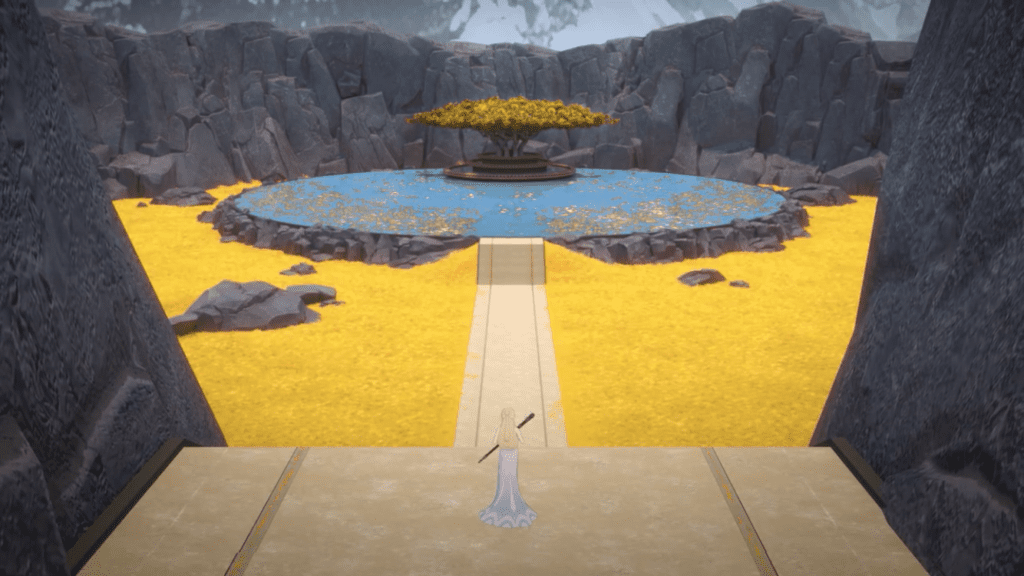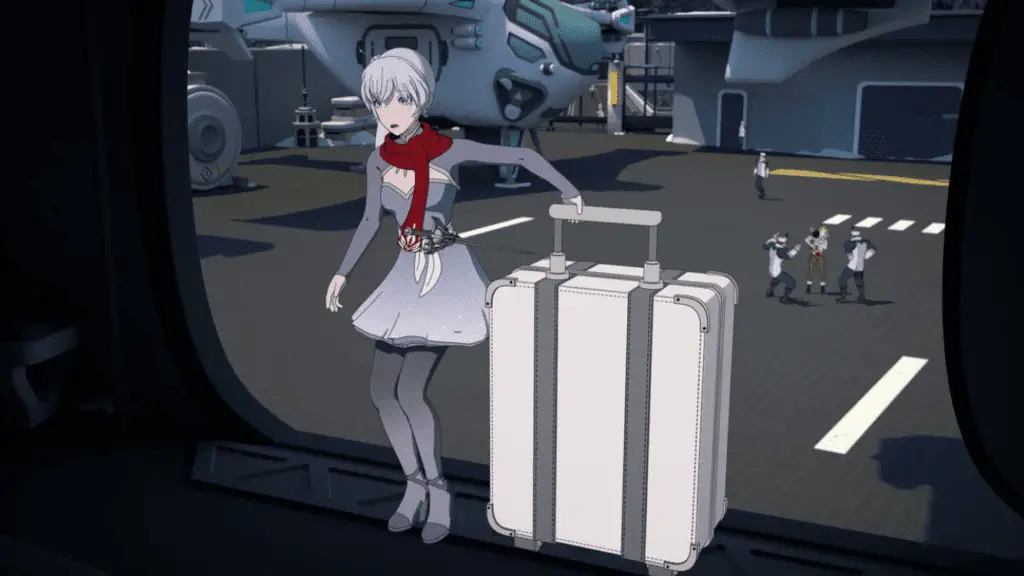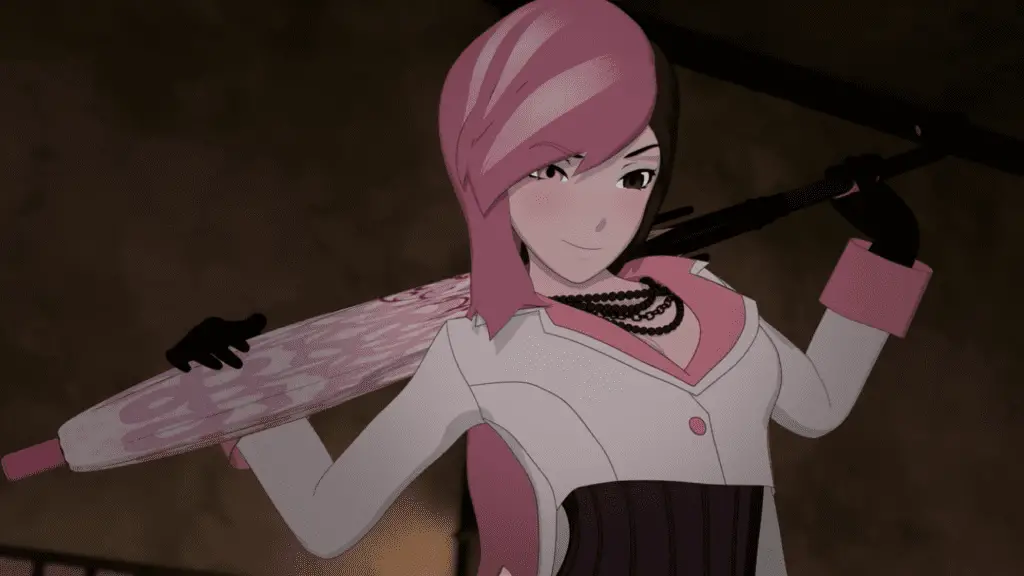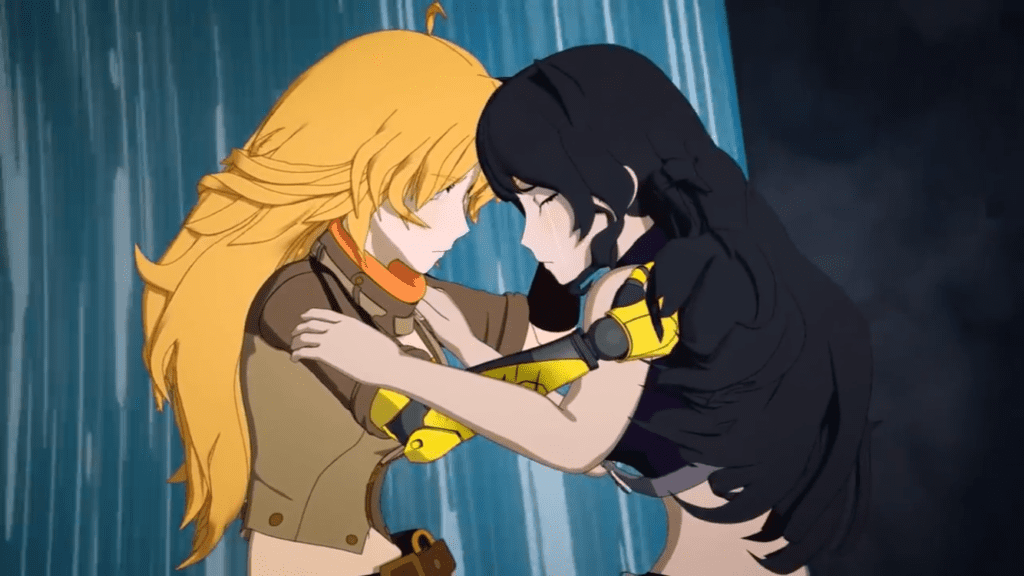You know, for a series so centred around the number four, good things really do seem to come in threes for RWBY.
RWBY volume six was, to put it bluntly, a massive improvement across the board. After the lacklustre volumes four and five, V6 was the breath of fresh air the series desperately needed. With the storytelling in particular undergoing a drastic change for the better, V6 was where RWBY really found its footing.
Story
For me, the highlight of volume six was how it completely revamped the series’ storytelling style. Where volumes one, two, and five offered multi-episode arcs and volumes three and four used more traditional, season-long narratives, volume six followed in the footsteps of the Marvel Cinematic Universe. What I mean by that is every episode felt different. Yes, when put together they formed a cohesive, season-long arc, but each episode felt like a story in and of itself, often distinguishable by different genres and storytelling techniques.

For example, episode three “The Lost Fable” is a flashback episode that depicts the history of Salem, Remnant, and Ozpin/Ozma. Episode six“Alone in the Woods” on the other hand is a horror-themed bottle episode that follows Ruby and co. as they fight a species of Grimm known as the Apathy. In contrast to that, episode ten “Stealing from the Elderly” is a straight-up heist episode where Ruby and co. try to steal an airship to get to Atlas.
Now while the changes in tone and style episode to episode aren’t as drastic as the MCU is movie to movie, the differences are still quite clear. Even the episodes that share the same tone and style manage to feel unique by keeping the episodes self-contained. Going back to “Alone in the Woods”, it and its proceeding episode, “The Coming Storm”, are both horror-driven. What makes them different though is that “The Coming Storm” focuses on character drama and building up a suspenseful atmosphere, “Alone in the Woods” is a horror thriller that focuses on the conflict between Ruby’s group and the Apathy.
This is the pattern used throughout V6 – stories that are similar enough to keep the transition from one episode to the next smooth and seamless, but different to make every episode feel unique and self-contained. This is what makes V6 so much more gripping than V5 – where V5 drags plot points such as the battle between the White Fang and the Belladonnas over multiple episodes, draining out the tension and leaving the audience frustrated with the lack of progress, V6 offers episodes that are satisfying enough on their own but leave room for more.
I’m not saying the series can’t use cliff-hangers; V3 demonstrated VERY clearly how to split conflict over multiple episodes without breaking the sense of suspense. What I am saying is that RWBY works best when the plot is structured in a way to keep the audience satisfied yet yearning for more. V3 and V6 work because the episodes reached a natural endpoint, whereas V5’s episodes ended with what felt like an ad break, with cliff-hanger’s that felt forced rather than organic.
Now V6 doesn’t avoid this issue entirely. Episode eleven “The Lady in the Shoe” and episode twelve “Seeing Red” both focus on the fight between Blake, Yang and Adam, and the fight between Ruby’s group and Cordovin, and it’s a noticeable step down from the rest of the volume. It’s not that these episodes are bad, it’s just in comparison to the carefully structured approach of the rest of the volume, they feel a little lacking. They fall into the same problem as V5: splitting important plot points – in this case, fight scenes – over multiple episodes means they lose some of their impact. Which is a real shame, since something as important as the Blake, Yang and Adam fight really should have had an episode fully dedicated to it.
Overall though, the storytelling for V6 was a huge improvement over V5. The structure of the story led to the pacing of the volume feeling a lot smoother. True, things did slow down in episodes eight and nine, but it did allow for some wonderful character moments (more on that later). This was easily the highlight of the volume, and with V7 just around the corner, I sincerely hope we see this pattern continue.

Music
Speaking of pacing and structure, the distribution of music in V6 was much more balanced than in V5. Rather than focusing the music around the character shorts and the final two episodes, V6 returned to the pattern established in V2 and V4, where new songs debuted across the course of the volume in pivotal moments, usually fight scenes, but occasionally character moments.
This is one of the reasons V6 feels like a return to form. Music has always been a fundamental part of the series, so seeing new songs every two or three episodes rather than just in character shorts and towards the end of the volume maintains the atmosphere of the series. Furthermore, it’s just plain exciting to get new songs and to spend hours listening and analysing them for all the details they provide about the characters.
As for the songs themselves, Jeff Williams once again provided a gorgeous, thoughtful soundtrack, with excellent vocals from his daughter Casey Lee Williams and new addition Adrienne Cowan. While a few of the songs weren’t as strong as others, the soundtrack still lived up to the high standard set by previous volumes.
Rising – A fun, catchy intro theme for the volume, but a little lacking in terms of meaning deeper meaning. While the overall theme of the heroes rising up to fight the forces of Salem was evident, some of the lyrics such as “the lightning doesn’t take advice from anyone” and “rain will help the flowers be” felt a bit vague and made the song weaker than previous opening themes.
Miracle – A great accompaniment to the episode one train fight, and also a nice little insight to where the characters are emotionally at this point in the volume. It’s not exactly warm and fuzzy, with lyrics like “confidence descending, where’s our happy ending?” showcasing the characters’ fears about their current situation. However, lines such as “we’re praying for a miracle, but for now we’ll stand and fight” demonstrate a willingness to face their enemies, giving the song a hopeful vibe.
One Thing – Brimming with revenge yet never feeling edgy, this song was a great way to reintroduce Neo to the series. Since Neo is mute, the audience has never gotten much insight into her mind, and this song was the perfect remedy. We learn how much she valued Roman, and how devastating his death has been on her, giving the song a vengeful yet sombre tone.

Lionize – Another fantastic insight into a villain’s mindset, Lionize showcases Adam’s god complex. “Surrounded by weaklings, pathetic and oppressed” reveals Adam’s loathing for his fellow Faunus, something the audience doesn’t really get to see in the series. “You’ll see, I’m their hero”, goes further, showing that for all his talk of justice for the Faunus, Adam’s real concern is only himself.
Big Metal Shoe – This one was fine, but a bit lacking. It’s really just a challenge from Cordovin to Ruby and co., and not much else. At the most, there’s a hint of her fear of losing her position, but that’s really all there is to it. It’s a catchy battle song, but not as meaningful as over RWBY battle songs.
Nevermore – RWBY has a track record of excellent ending credits songs, and Nevermore is no exception. Smoothly switching from slow and haunting to a fast and thrilling, the song acts a perfect cap to the conflict between Blake, Yang, and Adam. It’s an acceptance of the trauma Blake and Yang have been through, but also a symbol of their newfound strength. Not only that, it denounces Adam’s god complex while expressing sadness for his death, and how killing someone so lost and twisted isn’t a cause for celebration.
Forever Fall – While a bit long, this song was chock full of emotion, and I completely understand why it would reduce the audience to tears. Casey Lee Williams’ singing ability shines here, giving the audience a tranquil, sombre song about Jaune’s mourning of Pyrrha, and just how close the two were.
Indomitable – This one is brilliant. What initially seemed to be a power piece for Ruby Rose turned out to be a moving memorial to series creator Monty Oum. From lyrics referencing how Oum created the series (“It’s map fashioned from a stain” and “frame by frame”), to the devastating loss of his passing (“for the unthinkable for something that’s so unfair”), to what he left behind (“we see his message, sparkling and crystal clear”), the song follows in the footsteps of Cold and Let’s Just Live in commemorating Oum. It cements the series as his legacy, with even the title being taken from a quote of his that I’ll leave you to ponder:
“I believe that the human spirit is indomitable. If you endeavour to achieve, it will happen given enough resolve. It may not be immediate, and often your greater dream is something you will not achieve within your own lifetime. The effort you put forth to anything transcends yourself, for there is no futility even in death.”

Next time: Characters & Conflict
Images courtesy of RoosterTeeth Productions

